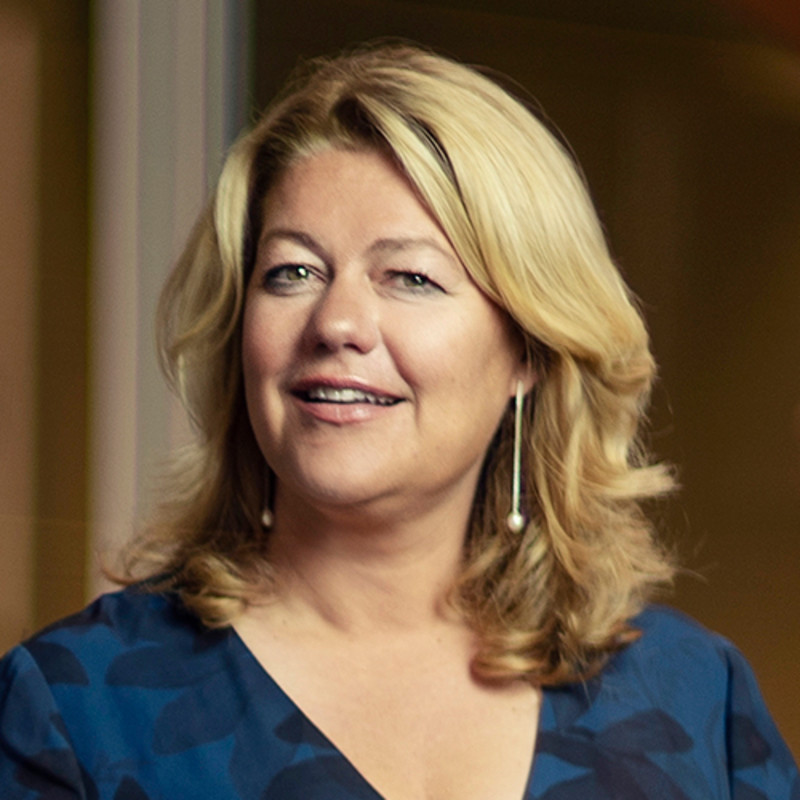

SI Dilemma: What is our real world impact as investors in secondary markets?
Allocating capital is the core business of investing. However, when investing through secondary markets, which is the largest part of what we do as asset managers, the link with actual new capital allocation is limited. Why then are we often held accountable for any investments that make a negative impact, but are scrutinized for taking credit for those investments that make a positive impact?
まとめ
- Proving that buying and selling stocks or bonds creates change is hard
- Decarbonization supported by engagement does make a difference
- Creating impact in secondary markets means investing in innovative companies
In the secondary market, there is always a buyer for everything we sell, and vice versa. We can influence prices, but selling or buying stocks or bonds does not lead to change in the real world directly. There are several mechanisms through which investors can influence real world change.
Allocating capital to companies based on ESG performance or impact can increase a firm’s cost of capital (which becomes important when money needs to be raised), or it can signal to stakeholders that the company should change its behavior. Unfortunately there is not a lot of empirical evidence yet that this is particularly effective.1
And then of course companies with higher costs of capital require higher returns, which could be interesting for financial-only investors. Another interesting perspective on this is given in our five-year Expected Returns, where we examine the potential climate impact on asset prices.2
Companies tend to be valued on cash flow models. Besides the long-term argument of a high cost of capital leading to higher returns for ‘brown’ companies, you can also use the shorter-term argument of an adaptation period. This takes into account climate change impact and how the cashflows of companies will be affected by climate change risk in the medium term. We assume that in the coming five years a positive climate premium will be priced in, leading to lower returns for ‘brown’ companies during this ‘adaptation period’.
As investors, the challenge for us is to reduce our real world negative impact and increase our real world positive impact. However, there is no clear evidence yet we can do this through capital allocation, though we have found other ways of exerting influence. An example of this is our net zero roadmap, which aims to help achieve a carbon neutral world by 2050. An important part of this is decarbonizing our assets.
But as discussed above, by selling our most carbon-intensive assets, the world does not suddenly emit less carbon. Therefore, we add other elements to our roadmap such as decarbonizing our own operations, which does have a direct impact and shows that we walk the talk.
We also try to accelerate the transition by engaging with companies and countries. Lastly, we cooperate with many investors, academics and industry initiatives to set standards and promote climate-aligned investing. We have also promised to work with our clients on decarbonization to cover 100% of our assets under management by 2050.
So, decarbonization is a big part of our net zero roadmap, and we are firing on more cylinders…
Creating impact through investing in secondary markets
Having said all that, as a golden oldie in the sustainable investing space, I simply refuse to believe that we do not have an impact through buying and selling stocks in the secondary market. We are seeing sustainability becoming more important and certain areas of business are becoming less and less acceptable to invest in, such as tobacco, controversial weapons and coal.
At the same time, some businesses have become more attractive to investors in areas such as energy efficiency products and electrical vehicles. This sends a clear signal to companies active in this space. Even if it is not a premium to harvest, at the least, we will be experiencing a transition period.
But there is also a second way to make an impact – namely by researching to what extent companies produce products and services that make a clear contribution to some of the sustainable development challenges. We can also research to what extent they develop new business models and expand their businesses into otherwise under-served markets, countries or regions.
サステナビリティに関する最新のインサイトを把握
ロベコのニュースレター(英文)に登録し、サステナブル投資の最新動向を探求しましょう。
How innovative companies make a difference
Some examples are innovative companies that are reducing their footprints via recycling, and pharmaceutical companies that work on pricing models based on the efficacy of the product. This is enabling them to develop cheaper access to health care via digitalization, or give access to medicine in under-served markets.
These companies create an impact versus the status quo. Investing in them will provide them with a shareholder who supports their mission and long-term orientation, which helps the company achieve both the financial and impact goals.
So, by taking both ESG and financials into account, and by adding active ownership with corporates, governments and our clients to the mix, we actually do increase our impact.
Footnotes
1 Is Exclusion Effective?, David Blitz and Laurens Swinkels, The Journal of Portfolio Management Ethical Investing 2020. And Cost of Capital and Sustainability: A Literature Review, Gianfranco Gianfrate, Dirk Schoenmaker, Saara Wasama, Erasmus Platform for Sustainable Value Creation,
2 5-year Expected Returns: the Roasting Twenties
SIディベート
重要事項
当資料は情報提供を目的として、Robeco Institutional Asset Management B.V.が作成した英文資料、もしくはその英文資料をロベコ・ジャパン株式会社が翻訳したものです。資料中の個別の金融商品の売買の勧誘や推奨等を目的とするものではありません。記載された情報は十分信頼できるものであると考えておりますが、その正確性、完全性を保証するものではありません。意見や見通しはあくまで作成日における弊社の判断に基づくものであり、今後予告なしに変更されることがあります。運用状況、市場動向、意見等は、過去の一時点あるいは過去の一定期間についてのものであり、過去の実績は将来の運用成果を保証または示唆するものではありません。また、記載された投資方針・戦略等は全ての投資家の皆様に適合するとは限りません。当資料は法律、税務、会計面での助言の提供を意図するものではありません。 ご契約に際しては、必要に応じ専門家にご相談の上、最終的なご判断はお客様ご自身でなさるようお願い致します。 運用を行う資産の評価額は、組入有価証券等の価格、金融市場の相場や金利等の変動、及び組入有価証券の発行体の財務状況による信用力等の影響を受けて変動します。また、外貨建資産に投資する場合は為替変動の影響も受けます。運用によって生じた損益は、全て投資家の皆様に帰属します。したがって投資元本や一定の運用成果が保証されているものではなく、投資元本を上回る損失を被ることがあります。弊社が行う金融商品取引業に係る手数料または報酬は、締結される契約の種類や契約資産額により異なるため、当資料において記載せず別途ご提示させて頂く場合があります。具体的な手数料または報酬の金額・計算方法につきましては弊社担当者へお問合せください。 当資料及び記載されている情報、商品に関する権利は弊社に帰属します。したがって、弊社の書面による同意なくしてその全部もしくは一部を複製またはその他の方法で配布することはご遠慮ください。 商号等: ロベコ・ジャパン株式会社 金融商品取引業者 関東財務局長(金商)第2780号 加入協会: 一般社団法人 日本投資顧問業協会





















